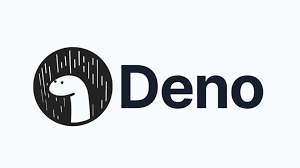Introducing Deno: The Next Generation JavaScript/TypeScript Runtime
 Cloud Tuned
Cloud Tuned
Introducing Deno: The Next Generation JavaScript/TypeScript Runtime
In the realm of JavaScript and TypeScript development, Deno has emerged as a powerful and modern runtime, designed to address many of the limitations of Node.js. Created by Ryan Dahl, the original creator of Node.js, Deno aims to enhance security, improve developer experience, and streamline the development workflow. In this article, we will explore what Deno is, its key features, and why it is gaining traction among developers.
What is Deno?
Deno is a new runtime for JavaScript and TypeScript that is secure by default. It was designed with simplicity and modern best practices in mind, aiming to provide a more robust and developer-friendly environment compared to Node.js. Deno runs on V8, the same JavaScript engine used by Google Chrome, and it is built using Rust, ensuring performance and safety.
Key Features of Deno
1. Secure by Default
One of the standout features of Deno is its security model. By default, Deno scripts have no access to the filesystem, network, or environment variables. Permissions must be explicitly granted, which helps prevent many common security issues associated with running untrusted code. This security model simplifies the development of secure applications.
2. TypeScript Support Out of the Box
Deno has first-class support for TypeScript, making it easy to write and run TypeScript code without the need for a separate transpilation step. This seamless integration enhances developer productivity and ensures type safety throughout the development process.
3. Standard Library
Deno comes with a rich standard library that includes modules for handling HTTP, file system operations, cryptography, and more. This library is designed to be minimalistic and consistent, reducing the need for external dependencies and simplifying the development process.
4. Built-in Utilities
Deno includes several built-in utilities that streamline development tasks. These utilities include a code formatter (deno fmt), a linter (deno lint), and a bundler (deno bundle). These tools help maintain code quality and consistency, making development more efficient.
5. Dependency Management
Deno simplifies dependency management by using URLs to import modules. This approach eliminates the need for a package manager and simplifies the process of managing third-party libraries. Dependencies can be imported directly from URLs, Git repositories, or from the Deno registry.
6. Cross-Platform Compatibility
Deno is designed to be cross-platform, running on Windows, macOS, and Linux. Its consistent API and straightforward setup process make it easy for developers to work across different operating systems without any additional configuration.
How to Get Started with Deno
Getting started with Deno is simple. Here’s a step-by-step guide to help you set up your development environment and run your first Deno script:
Install Deno: Visit the official Deno website and follow the installation instructions for your operating system. You can also use a package manager like Homebrew (macOS) or apt (Ubuntu) to install Deno.
curl -fsSL https://deno.land/x/install/install.sh | shCreate a New File: Create a new JavaScript or TypeScript file. For example, create a file named
hello.tswith the following content:console.log("Hello, Deno!");Run the Script: Use the
deno runcommand to execute your script. Deno will automatically detect and execute the file.deno run hello.tsExplore the Standard Library: Take advantage of Deno’s standard library. Try importing and using some of the built-in modules, such as the HTTP module for creating a simple server.
import { serve } from "https://deno.land/std/http/server.ts"; for await (const req of serve({ port: 8000 })) { req.respond({ body: "Hello, world\n" }); }
Conclusion
Deno represents a significant step forward in the evolution of JavaScript and TypeScript runtimes. Its focus on security, simplicity, and modern development practices makes it an attractive choice for developers looking to build secure and efficient applications. With its powerful features and growing community support, Deno is poised to play a crucial role in the future of web development.
If you found this article insightful and are interested in more content like this, please leave a comment below and subscribe to our blog newsletter. We look forward to sharing more tips, tutorials, and updates to help you stay ahead in the world of software development.
Subscribe to my newsletter
Read articles from Cloud Tuned directly inside your inbox. Subscribe to the newsletter, and don't miss out.
Written by
